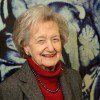
Over the past several decades, neurostimulation techniques such as transcranial direct current stimulation (tDCS) have gradually gained favour in the public eye. In a new report, published in the prestigious scientific journal Neuron, IRCM ethics experts directed by University of Montreal’s professor Éric Racine raise important questions about the rising tide of tDCS coverage in the media, while regulatory action is lacking and ethical issues need to be addressed. Continue reading














